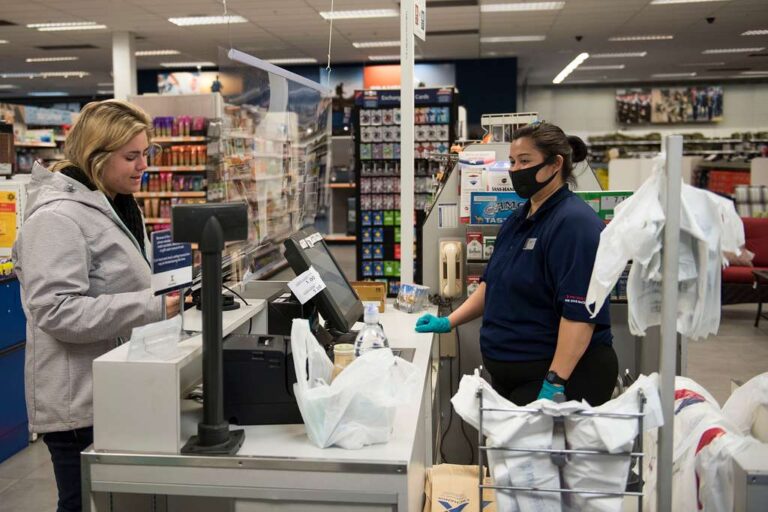The New York Times reports that approximately 11,000 airline catering workers will vote this month on whether to take a first step towards a labor stoppage. Airline catering workers are among the lowest-paid workers at airports. Many make minimum wage, or less; current bargaining agreements allow catering workers’ pay rates to supersede state or local wage laws. The hospitality-industry union Unite Here, which represents a majority of airline catering workers, is proposing a national wage floor of $15 per hour. The union also wants LSG Sky Chefs and Gate Gourmet, the two catering companies that employ most airline catering workers, to make their health insurance substantially more affordable.
Because caterers and other airline workers are covered by the Railway Labor Act, not the NLRA, airline catering workers must obtain a release from mediation from the National Mediation Board before striking. Republicans hold a majority on the board, and the board is generally loath to permit strikes. But airline workers may affect air travel without formally striking. Mechanics at Southwest Airlines, for instance, recently won raises after a large increase in the number of maintenance issues they flagged forced flight delays and cancellations. “We’ll do whatever it takes, within legal means,” said Unite Here president D. Taylor, “to make sure workers get good contracts.”
On Monday, June 3, the Supreme Court issued a unanimous opinion in Fort Bend County v. Davis, holding that Title VII’s administrative exhaustion requirement is not jurisdictional, and that an employer may forfeit the right to challenge a Title VII claim on the basis of the employee’s failure to exhaust administrative remedies if it fails to raise the challenge in a timely fashion. Davis overrules Fourth and Tenth circuit precedent that prevented employees from bringing a Title VII claim in federal court without first listing the claim in a charge of discrimination before the EEOC or a state or local employment agency. The Court did not decide how long an employer can wait before raising the administrative exhaustion defense, nor whether the administrative exhaustion requirement can be subject to equitable exceptions.
Also on Monday, Sen. Elizabeth Warren’s 2020 campaign staff unionized. A majority of Sen. Warren’s 208 campaign staff authorized the International Brotherhood of Electrical Workers Local 2320 to represent them through a card check campaign, which Sen. Warren’s campaign leadership agreed to recognize. The union and campaign leadership have yet to begin negotiations. Sen. Warren’s campaign is now the third presidential campaign in history to unionize. Sen. Bernie Sanders’ campaign was the first, followed by former HUD Secretary Julián Castro’s.
A study from McKinsey Global Institute, released Tuesday, finds that 107 million jobs held by women across the world are at risk of being displaced by automation by 2030. The study upends the notion that automation will hit predominantly male manufacturing workers the hardest; the 107 million jobs that women stand to lose constitute 20% of overall female employment, while automation threatens 21% of overall male employment. But the effects of automation may still be harsher for female workers. Although the rate of job growth could be slightly higher for women than men, because women hold the majority of jobs in the fast-growing health care industry, the study finds that women take on a disproportionate share of unpaid care work, including child care, which may prevent them from transitioning into new jobs.






Daily News & Commentary
Start your day with our roundup of the latest labor developments. See all
October 30
Sweden’s Tesla strike enters its third year; Seattle rideshare drivers protest Waymo’s expansion in the city.
October 29
9th Circuit rejects challenge to NLRB's constitutional structure; preemption challenges to state labor peace statutes
October 28
Two federal unions oppose CBA cancellations, another federal union urges Democrats to end the government shut down, and Paramount plans for mass layoffs
October 27
GM and Rivian announce layoffs; Boeing workers reject contract offer.
October 26
California labor unions back Proposition 50; Harvard University officials challenge a union rally; and workers at Boeing prepare to vote on the company’s fifth contract proposal.
October 24
Amazon Labor Union intervenes in NYS PERB lawsuit; a union engages in shareholder activism; and Meta lays off hundreds of risk auditing workers.